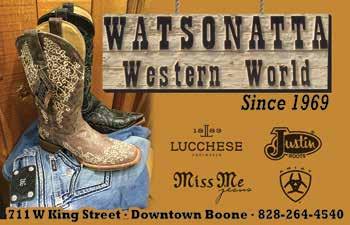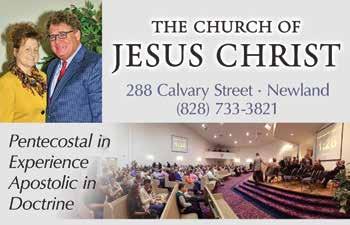
15 minute read
REVEREND BRANDON WRENCHER
Race Relations in the Christian Community
Reverend Brandon Wrencher
An African American pastor discusses steps for change.
Even before the shooting in Charleston, South Carolina, the Rev. Brandon Wrencher was concerned about race relations. After the shooting, he knew the issue would no longer be ignored.
On June 7, 2015, Dylann Roof walked into Emanuel African Methodist Episcopal Church in downtown Charleston. After sitting through the service, he opened fire, killing nine people. While it wasn’t the first act of racial violence to make national news headlines in recent months, it put many people on edge because of the location.
“Before it was easy to paint it as other people’s issue, people outside the High Country, off the mountain,” Wrencher said. “White and black High Country folks typically say, ‘We don’t have those sorts of issues [shootings and racism] here.’ But with this, because it happened in a church, in a sacred space, a space where it’s clear it was a case of terrorism, folks were outraged.”
Living in Cross-Racial Spaces
Wrencher is the African American pastor of Blackburn’s Chapel United Methodist Church, an all-white church located in rural Todd, North Carolina. He grew up in North Carolina and said he has experienced overt racism in his life. His parents were more educated than those of his peers, making him a minority of minorities. Eventually, his family moved to an affluent all-white neighborhood, where almost everyone owned homes but his family rented. He had friends, but when they were with other white people, they acted differently toward him.
Eventually, Wrencher, his siblings, and his mother moved in with his grandmother, and he felt displaced again in a rural community that wasn’t affluent and all white. He said it wasn’t until he started attending college at UNC-Chapel Hill that he was able to start thinking critically about his experiences and to develop a stronger sense of racial and social awareness.
Soon after Wrencher moved to Todd, the Trayvon Martin case concluded. He said it was hard for him and that he couldn’t sleep at night. He didn’t yet know the community, and he was afraid for his 4.5-month-old son’s life and his own.
A year later, Michael Brown was shot, and Wrencher went through a similar period of grief and anger. Although it was different, in some ways, it felt the same.
To cope, Wrencher helped organize a vigil in Boone. He later organized another one at his church, which was well attended. People traveled from Boone to Todd to participate.
“Those spaces were healing for me, but I still felt this sense of disconnect between wanting to go and be in Ferguson and being in Todd,” he said. “I felt pulled in different directions. I felt, what is the work I’m doing here? How does it relate to my commitment to racial justice? What happened was I started taking more serious being faithful to the call God has on our lives to be salt and light in this community, to love beyond differences. I had tons of opportunities to go to Ferguson and other places, and I chose not to. I chose to try to connect Todd to Ferguson through preaching in particular and through our ministry of prayer.”
A Group is Formed
After the attack in Charleston, Wrencher said he felt numb because it was too painful. He gathered with the two other black clergymen in the High Country and several other clergymen and women and church leaders to form a group called the High Country Clergy and Leaders Group.
During the first meeting, Wrencher said that the black pastors were given the floor to talk about race and social justice. As the conversation continued, he found that many of the white members had trouble bringing up race relations with their congregations.
“The High Country faith community in particular has struggled to know how to respond, primarily because we have such a small population of African Americans and people of color in general in this area,” Wrencher said.
The group of around 20 people gathers regularly to have a safe place to discuss issues of race and issues of social justice. They seek understanding among one another and hope to change the way that the Christian community in the High Country sees racial relations.
The discussions have centered around how the church can respond without trying to convert one another to a particular political party. Eventually, the group settled on hosting a training for clergy called Mobilizing the Gospel: Transforming Leaders and Communities, for clergymen and women and church leaders in the area in November. The Rev. Alexia Salvatierra, author of “Faith-Rooted Organizing: Mobilizing the Church in Service to the World,” spoke at the November conference about multiple topics, including about how to talk to parishioners about race and how to engage with issues of systemic injustices. In the spring, the group will host a larger conference for the public that will discuss how faith, the community, and justice intersect.
“My personal commitment to this is recognizing that it’s impossible for me to not feel what other persons of color, even though they’re in different cities, feel in the aftermath of such racial unrest and racial violence,” Wrencher said.
Along with discussing race, the group also discusses social issues, such as poverty. Wrencher said that he
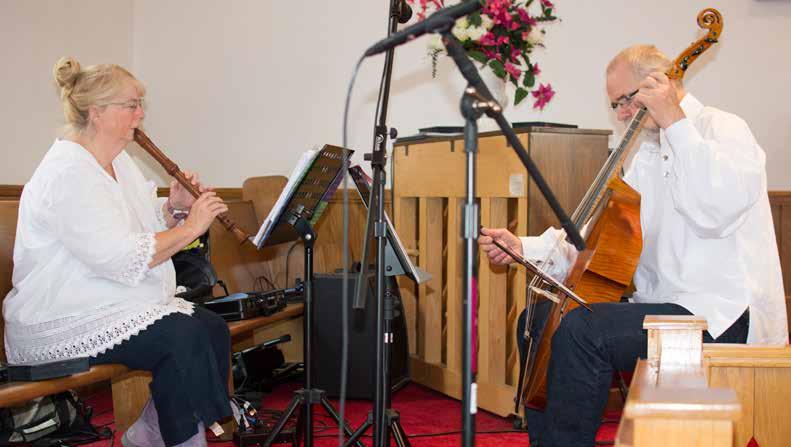
Wrencher described the goal of the group through the words of John Wesley. Wesley had three rules: Christians should stay in love with God, do good, and do no harm. Wrencher said that he believes Christians do a good job of loving God and doing good. Where we often fail is in doing no harm.
“It’s a commitment to resist injustice and to discover the ways in which we might be silent about injustice or be unaware of it even if we’re not explicitly engaging in it,” Wrencher said. “The old saints when I grew up called it sins of omission and commission. Sins of omission you don’t really know that you’re doing, but they’re nevertheless just as important. To do no harm is to stay in love with God. The three are connected.”
One of the most important steps white Christians can take to be sensitive toward racial issues is to speak with gentleness, Wrencher said. He hopes that people will be willing to listen and learn.
“The biggest thing white Christians can do is just to simply learn how to have better language, and I don’t mean that in being politically correct,” he said. “I’m talking about shifting our language to be more caring and loving and compassionate and careful. Political correctness lacks the internal motivation, the kind of integrity I’m talking about. It’s more about posture and about attitude than about doing something. Having the wrong perspective drastically can corrupt and create a diseased social imagination.”
Wrencher is thankful that racial divisiveness hasn’t dom- inated Blackburn’s Chapel. Still, he comes from an eclectic and culturally diverse spiritual background, so he has faced some challenges in pastoring a rural, all-white church. He said that he’s used to verbal affirmation and celebration while he preaches; instead, he’s now learned to be attentive to the ways his congregation does respond—through tears or smiles.
Before moving to Todd, Wrencher attended seminary in Chicago. When his wife got pregnant with their first child, they decided to move back to North Carolina. Wrencher knew he wanted to pastor a Methodist church but wasn’t actively searching for jobs. But at his school, the church in Todd showed up in a job advertisement.
“We just felt connected to the mission,” Wrencher said. “At that time, I just knew that the church took this huge risk on starting an intentional community. We had always been fascinated by intentional communities. There’s a type of slowness and attention to the mundane in life that we really long for. It felt like a God thing.”
He spent a year observing the church and building trust and relationships. When the pastor left, Wrencher was in a position to take over. He’s been in Todd for two years now and enjoys the rural community. He said that sometimes in multicultural ministry, diversity can feel commodified. It’s easy to talk about it in areas where diversity already exists. Wrencher has enjoyed including Todd in that conversa- tion and authentically seeking fellowship with his church members.
In Wrencher’s church, racial justice and multi-ethnicity aren’t a core feature. But the congregation does address racial issues, and he hopes to connect the church to those issues through imagination. He wants the congregation to take seriously their racial and moral formation. He said he once taught a series on the importance of embodiment, in which he discussed the vision for God restoring and recon- ciling and about what embodiment means for one’s moral and spiritual life.
Wrencher said that he wants all Christians to take part in changing the community, but first, he wants white Chris- tians to listen. He said that they often seek instant gratifi- cation in fixing problems when the Scriptures tell us to first renew our minds and be transformed (Romans 12:2). He suggested that people find resources to learn more before acting. If you have questions about race relations in the High Country and how you can be a part of the conversa- tion, you can contact Wrencher at brandonwrencher85@ gmail.com or 910-603-0199. ...
Helping
at Risk Children
Children from abusive or neglectful homes do not know the power of kind words, encouragement and praise. Rather, their world is often full of a gray touch, loud voices, harsh tones, or just as bad, silence.
The Guardian ad Litem program (GAL) was set up by the North Carolina General Assembly. It is a program whereby trained volunteers advocate for children who are already in the judicial system due to at home abuse or neglect. This program empowers and protects children, giving them a voice in the court system. It is set up to ensure that children in these vulnerable situations are secured in environments that offer stability, love and a future. They are cared for and cared about.
For volunteers, it is not just being present in court with these children. Many hours are spent researching each child’s case, their needs and desires, as well as talking with parents, extended family, and schools, and acquiring records and past history which help them make wise decisions on the child’s past and future wellbeing. So it is with knowledge that they can speak and act on the child’s behalf.
Shirley Duemer and Sylvia Edsel are two such volunteers; cousins with equal desires to improve the lives of at risk children. Shirley has always had a heart to help others, working with both the elderly and children in various capacities, but she finds herself repeatedly drawn to protect the needs of vulnerable children. “It is like a calling...when you wake up in the night and cannot sleep because you feel the weight of these children’s needs. Often it seems the adults in their lives just don’t care.” She recalls times, when working retail, seeing young children wandering aimlessly around the store without supervision. It was clear that no one cared. One pivotal point, she reflects, was seeing a mother slapping a child repeatedly as they walked across a parking lot to enter a store. Other family members following seemed to feel that this was normal behavior. She wanted to intervene, but felt helpless.
“Children want and deserve a stable, loving environment to feel welcomed in… they long for the sense of community belonging that should come with family.Sometimes this does not happen. There was a young man, close to our family, he even lived with us for a time, who was drawn to commit suicide because he didn’t feel like a part of his own family. When I see a child with a black trash bag full of their belongings, well, I know why I am so motivated.” She continues, “It is a child’s right to have the stability of a family with love, disabling boundaries, the sense of being wanted and cared for.” She commented that she recently read an observation that in past years when a relationship was broken, you did everything you could to see it mended. Nowadays, when a relationship gets tested or becomes difficult, it is just discarded, not being important enough to repair. “This is very true, families are hurting.”
It is this passion from the Lord that keeps Shirley awake at night, but she has found a way to make a difference. Throughout several years as a GAL volunteer, Shirley has worked numerous cases to ensure each child’s voice is heard. “It is their right, it is my calling.”
Cousin Sylvia was raised by a bible believing momma who set an example of caring for other people’s children in their own home. Sylvia’s own heart for children is apparent through her active involvement in Sunday school, Good News Club, and taking in her own at-risk grandchildren.
She worked in the office for the school system for many years. She saw children coming in from needy, neglectful, or at times seemingly abusive homes. She saw the toll it took on the children. She recalls one pivotal point, ”A brother and sister left on the bus one day. It was clear they were not from a stable home.
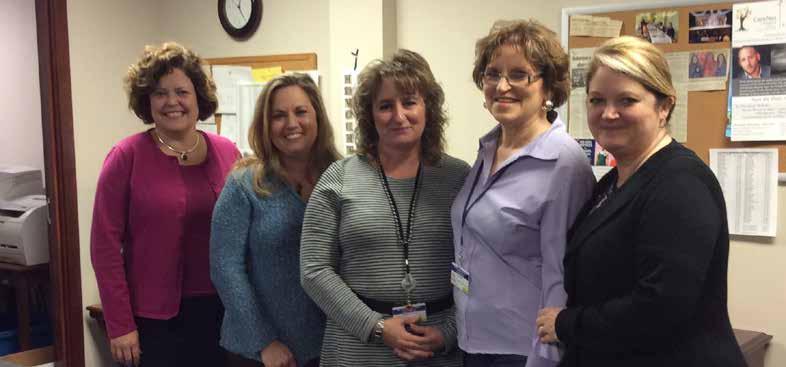
As the bus driver dropped them off his own heart sank. There was no home left in that house. The parents had moved away without their children. Not knowing what to do, the bus driver brought them back to school so proper authorities could be reached.” Seeing this kind of neglect and abuse left a lasting impression on Sylvia.
She left her job in the school system not long afterward to care for her own grandchildren, and became part of the GAL program when they reached preschool age. “Advocating on behalf of at risk children is what I need to do. I am still advocating on behalf of my own grandchildren. It is a key to not let these children fall through the cracks in our society and judicial system. Someone must be there to ensure their safety, to advocate on their behalf, so that the judge can ascertain what is most beneficial for that particular child. There are many parents imprisoned, many homes unsafe. We gather all the information so the judge can rightly judge.”
Compassion seems to be the core value of the GAL volunteers, and a dedication to a cause they deem valuable. Sylvia’s heart is toward these children. “It’s not that I don’t care about the parents. They have made mistakes, but the child is not at fault. We must push past all of the excuses and consider what is best for the individual child. Seeing them positioned in an environment surrounded by love and security is what we strive to accomplish.”
Sylvia, a cancer survivor, comments on how faith is such an important part of her life and what she does. ”If I did not have faith, I would go insane! God has let me know my life’s purpose is much more than a job,working, or pleasure. I have found His purpose for me through being a child advocate. How could I turn my back? God put it in my heart to do. I don’t want the Lord to say to me one day, “Where were you? Why did you not do the things I put in your heart to do?” We must listen to the Lord in our own hearts, finding our purpose, following the passions the Lord puts there. It is like our mission.” So Sylvia gets involved to search out each child’s spiritual, emotional, and physical needs, so they can be met. “I support the child. And I pray, I pray for all these children and their families.” that it brings stability to the child to have the same person helping them throughout the process of finding a safe environment. A friend, not someone who is always prying. Someone to laugh and share with, and to have the reward of seeing the children, as they get older, wanting to give back in their communities.
Because the volunteers are unpaid, the families they are trying to reach seem to trust them more, letting them in their homes and lives to communicate a bit more freely. Volunteerism seems to be a key in dissipating their suspicions and pulling down defenses.
If children learn what they live, this group is dedicated to ensuring that the children they come in contact with are learning encouragement, acceptance, security and kindness, so they too can know confidence, justice, and faith, and become adults who give back in their own communities. ...
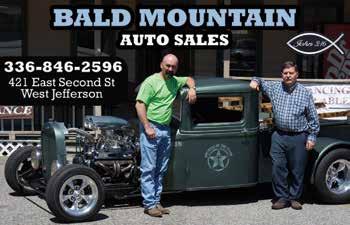

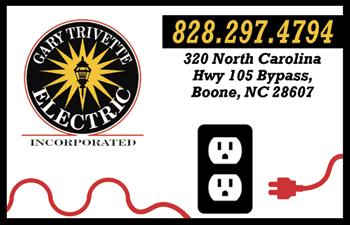
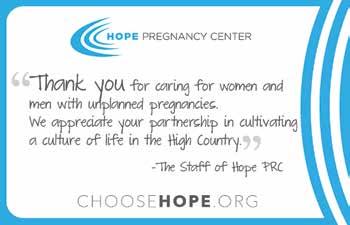


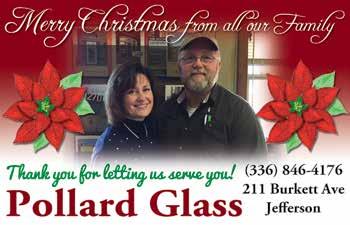
Merry Christmas
